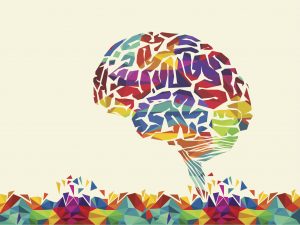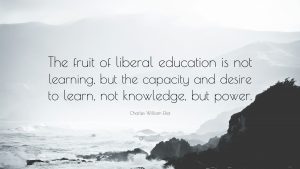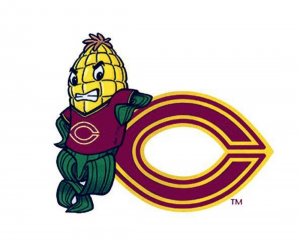Throughout my experience in Neurochemistry this semester, I have had the opportunity to witness many of the topics that I have learned over the course of my college career at 
Concordia come together and be applied to real-world situations and experiences.
Concepts from biochemistry, cell biology, human anatomy and physiology, and psychology intersected in many ways throughout the topics that we covered in Neurochemistry. Additionally, this course provided us the opportunity to work with students from the social work department, and also community members from various disciplines.
A Liberal Learning Experience

This capstone course was the perfect culmination of applying the goals of liberal learning and using the knowledge and experiences I have gained over the past three years to discuss and analyze real-world issues. The first goal of liberal learning is to ‘instill a love for learning.’ I experienced this through the unique format in which Neurochemistry was taught. Instead of being a lecture-based class, obtaining knowledge came from collaboration of the whole class. For each week’s topic, our class read a research paper that discussed a given illness, disorder or disease we were focusing on. These papers were often challenging to understand completely because they are written at such a high level and included concepts, terms or topics that we may not have learned about. Each week, our class compiled a list of topics that we wanted to learn more about, and each of us researched a specific area. The following class period, we were responsible for teaching the others about the research we did and information we found. Prior to this course, I already did have a love of learning but the format of this course definitely taught me that there’s always something new that you can learn. Especially in the sciences, research is continuously developing and new discoveries are constantly being made.
The second goal of liberal learning is to ‘develop foundational skills and transferable intellectual capacities.’ This was achieved through our class discussions and blog posts. After covering each topic, the discussions that our class held at the end of every week helped us put everything together that we had learned throughout the week. This allowed us to wrap up any loose ends or questions that we encountered throughout the week while also discussing possible controversies and other perspectives on the topic of the week. Our weekly blog posts allowed us to share our knowledge and research from the week with the outside world. These blogs allowed us to include our own viewpoints on the topics as well as sharing our knowledge of the chemistry going on in the brain for these various topics.
Through the work completed in this course, I was able to understand disciplinary, interdisciplinary and intercultural perspectives which is the third goal of liberal learning. 
During the community action project, we collaborated with social work students to benefit a group in the community. We educated direct-support professionals at Fraser on anxiety and PTSD, the neuroscience behind it, and methods to treat and cope with
these disorders. This experience allowed me to hear perspectives from other people besides my science-major classmates. I think when looking at the science behind illnesses and diseases, the fact that this is happening to real people can be sometimes be forgotten. It is important to recognize and address that there are social and emotional components when talking about neurological diseases, both for the patient and their family or caretaker. In this project, we were able to come together, each person bringing unique strengths, to come up with an effective project to educate professionals that work with individuals suffering from anxiety and PTSD.
The fourth goal of liberal learning was also accomplished through our class discussions and blog posts. This was done by conversing and debating different cultural and ethical perspectives in a respectful environment where everyone could share their personal views on the topic without judgement or criticism. The topics we discussed often had to do with differing morals and determining what was right or most fair for an individual. Additionally, the future of our country and world was also discussed with topics like obesity and addiction. We talked about changes that should be made to both the health care system and the role of the government to prevent these tragic health issues that are plaguing our country and the world’s population. If nothing is done to combat health issues such as these, there will be many detrimental health complications and likely a shorter life-span in generations to come.
BREW-ing!

In summary of my experience in this course, I believe gained knowledge not only in the subject of neurochemistry, but how to actually use this knowledge along with everything else I have learned from my time at Concordia to be a valuable citizen to my communities. In today’s culture, knowledge is power; the more you know, the decisions you make are more informed and you are able to share that knowledge with others to create a more knowledgable community. This course provided me with the experience of being able to take things that I learned from the research papers and our class discussions and share that information with others in an easy-to-understand manner through the blog posts and also our community action project. I believe I have also achieved the last goal of liberal learning and truly ‘Become Responsibly Engaged in the World’ (BREW-ed) through this course and the past three and a half years at Concordia. I feel that I am ready to go out into the world and share my knowledge and perspective with others to make a difference in the lives of others.